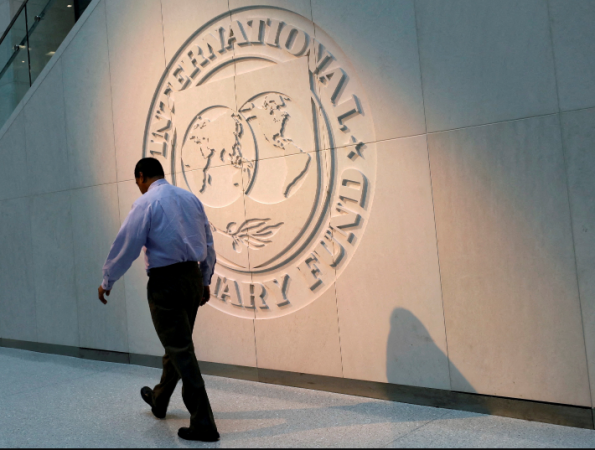
Washington: The International Monetary Fund (IMF) has revised its global growth forecast downwards, predicting a growth rate of 3.0% for both 2023 and 2024, down from the 3.5% forecasted for 2022. This significant adjustment highlights the prevailing challenges and uncertainties that are shaping the global economic landscape.
The IMF's decision to downgrade its growth projections comes on the heels of several complex factors that are converging to impact economies worldwide. One of the foremost disruptors is the ongoing conflict in Ukraine. The war has disrupted trade routes and investments, creating a ripple effect that has triggered higher energy and food prices. These elevated costs are casting a shadow over economic activities in Europe and beyond.
A notable consequence of the Ukraine conflict has been the disruption of trade relations, leading to supply chain disruptions and decreased investor confidence. The uncertainty and volatility that arise from geopolitical tensions can lead to reduced economic activity, as businesses delay investments and consumers hold back on spending.
Also Read: China's Economic Growth Slows to 4.8% in July Amidst Multiple Challenges
Compounding these challenges is the specter of inflation, which has been surging in multiple countries. Inflation rates have reached multi-decade highs, and central banks are responding by raising interest rates to counteract this trend. However, this strategy poses a dual-edged sword, as the hikes may inadvertently dampen economic growth. Elevated interest rates can make borrowing more expensive for businesses, thereby hampering investment and expansion plans.
Furthermore, tighter financial conditions are looming large, driven by actions from the US Federal Reserve and other central banks. Their endeavors to curb inflationary pressures may inadvertently restrict access to capital for businesses, hindering growth prospects. This intricate interplay between central bank policies, inflationary pressures, and economic growth underscores the complexity of managing economic stability in the face of multifaceted challenges.
Also Read: Global Economic Growth Expected to Slow in 2023, But Recession Not Imminent, Says OECD
The IMF's downgraded growth projection is a wake-up call for global economies, highlighting the fragile nature of the global economic ecosystem. This recalibration of growth prospects can have far-reaching implications across various sectors and nations. The ripples of this forecast change touch upon the following aspects:
1. Business Adjustments: Businesses may adopt a cautious approach by cutting back on investments and limiting new hiring. The uncertainty stemming from geopolitical conflicts and inflationary pressures could impede strategic expansion plans, especially in sectors heavily reliant on stable global economic conditions.
2. Consumer Behavior: The forecast downgrade may influence consumer sentiment and spending patterns. With concerns about job security and the overall economic outlook, consumers might become more conservative in their spending habits, leading to reduced demand for goods and services.
3. Government Fiscal Measures: Governments could face challenges in managing public finances in light of lowered growth projections. The need to balance budgets and address the economic slowdown may necessitate difficult decisions, such as raising taxes or cutting public spending.
4. Recession Risks: As growth projections are revised downwards, the specter of recession becomes more pronounced. While a recession is not a foregone conclusion, the probability increases when multiple factors converge to weaken economic activity.
This IMF downgrade underscores the vulnerabilities of the global economy and highlights the imperative for concerted, strategic action. Policymakers and governments have a pivotal role to play in mitigating these challenges and fostering a more resilient economic environment. The IMF's call for decisive action reflects the urgency of the situation.
Addressing the multifaceted challenges requires a comprehensive approach:
1. Collaborative Diplomacy: International conflicts and geopolitical tensions can have dire economic consequences. Collaborative diplomatic efforts are essential to de-escalate conflicts and restore stability to disrupted regions.
2. Inflation Management: Central banks must balance the need to curb inflation with the imperative to sustain economic growth. Communication and transparency in monetary policy are crucial to managing market expectations.
3. Investment in Infrastructure: Governments should consider investing in infrastructure projects to stimulate economic activity. These initiatives can create jobs, bolster domestic industries, and contribute to sustainable growth.
4. Support for Vulnerable Groups: Policymakers should prioritize measures that support vulnerable populations, including social safety nets and targeted financial aid, to mitigate the impact of economic uncertainty.
5. Long-Term Structural Reforms: Structural reforms that enhance economic flexibility, encourage innovation, and promote productivity can contribute to long-term economic resilience.
Also Read: Reliance AGM 2023: Jio Surpasses 450-Mn Subscribers; Monthly Data Usage at 25 GB
The IMF's revised global growth forecast serves as a stark reminder that the global economy is shaped by intricate forces, often beyond the control of individual nations. Collaborative efforts, proactive policies, and strategic interventions are essential to navigate these challenges, bolster economic stability, and chart a course towards sustainable growth. The world's collective response to these challenges will determine the trajectory of the global economy in the coming years.